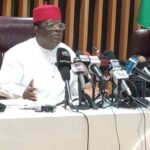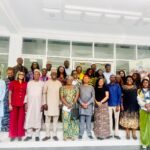Lekki Port to restore Nigeria’s transshipment hub status
By Chiazo Ogbolu Mr Kehinde Olubi-Neye, the Chief Commercial Officer of Lekki Freeport Terminal, says the port will facilitate the return of cargo transshipment hub status back to Nigeria. Olubi-Neye said this at a media conference held at the port’s complex in Ibeju Lekki, on Wednesday in Lagos. He saidContinue Reading











